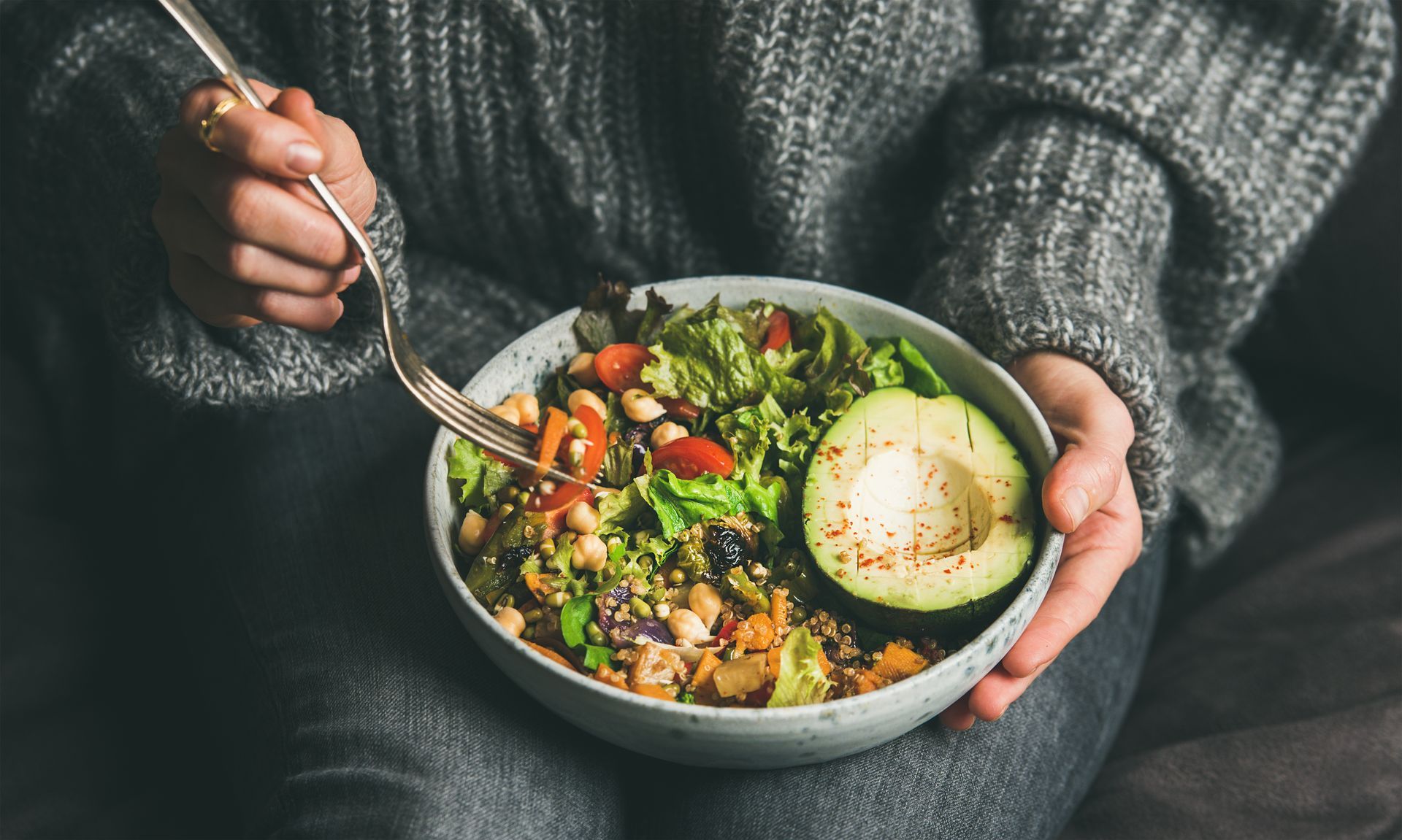My Top Nutrition Tips for Eating Well During Perimenopause
Perimenopause can feel like your body has suddenly changed the rules on you. Energy dips,
fluctuating weight, cravings, brain fog, and mood swings can all start to appear — and
sometimes it feels like nothing you’ve done before works anymore.
The good news? Nutrition can make a huge difference. Eating well during this time isn’t
about strict diets or deprivation — it’s about nourishing your body, balancing hormones,
and feeling like yourself again.
Here are my top tips as a nutritionist for eating healthily during perimenopause.
1. Prioritise Protein at Every Meal
Protein is essential for keeping muscles strong, supporting metabolism, and keeping blood
sugar steady. As oestrogen declines, women naturally lose muscle mass faster, which can
slow metabolism and make weight management trickier.
Aim to include protein at breakfast, lunch, and dinner:
● Eggs or Greek yoghurt
● Chicken, turkey, or fish
● Tofu, tempeh, or legumes
● Nuts and seeds
Even small amounts help stabilise energy and support hormone balance.
2. Fill Up on Vegetables and Fibre
Fibre is your friend during perimenopause. It helps with digestion, supports healthy blood
sugar, and even assists your liver in clearing excess oestrogen.
Focus on a colourful mix at each meal:
● Leafy greens like spinach and kale
● Cruciferous veg like broccoli and Brussels sprouts
● Carrots, peppers, tomatoes, and beetroot
● Beans, lentils, and whole grains
Aim for 30g of fibre per day to keep things moving smoothly.
3. Include Healthy Fats
Your hormones are made from fat, so including good fats is essential:
● Oily fish like salmon and sardines
● Avocado and olives
● Nuts and seeds
● Olive oil or flaxseed oil
Healthy fats also help keep your mood balanced, support brain function, and reduce
inflammation — all important during perimenopause.
4. Don’t Forget Calcium and Vitamin
Bone health becomes increasingly important as oestrogen declines. Make sure you’re
getting enough calcium and vitamin D to keep bones strong:
● Dairy or fortified plant milks
● Leafy greens
● Tofu set with calcium
● Sunlight for vitamin D (or a supplement if needed)
Combining these with weight-bearing exercise maximises the benefits.
5. Keep Blood Sugar Stable
Fluctuating oestrogen can affect blood sugar regulation, which can increase cravings, mood
swings, and energy dips.
● Pair carbohydrates with protein or fat fat (think oats with Greek yoghurt or wholemeal
toast with nut butter)
● Opt for whole grains over refined carbs
● Snack mindfully with fruit, nuts, or hummus with veg
6. Hydration Matters
Dehydration can worsen fatigue, bloating, and brain fog. Aim to drink water throughout the
day, and include hydrating foods like soups, smoothies, and fruits.
7. Limit Processed Foods and Added Sugar
Highly processed foods and sugar can contribute to inflammation, hormone imbalances, and
weight fluctuations. Instead:
● Cook from scratch where possible
● Swap sugary snacks for fruit, nuts, or yoghurt
8. Listen to Your Body
Perimenopause is a time of change, so your needs may shift from month to month. Some
days you might need more protein, other days more carbs for energy. Tuning in to your
body’s signals is one of the most powerful ways to support your health.
Final Thoughts
Eating healthily during perimenopause isn’t about perfection — it’s about making small,
consistent choices that nourish your body and support your hormones.
Simple adjustments can help ease symptoms, support energy, protect your bones and brain,
and make this transition a little smoother. The right nutrition can help you feel strong,
balanced, and energised every step of the way.
The Oxford Clinic for Nutrition
24 Barley Close, WallingfordUnited Kingdom












